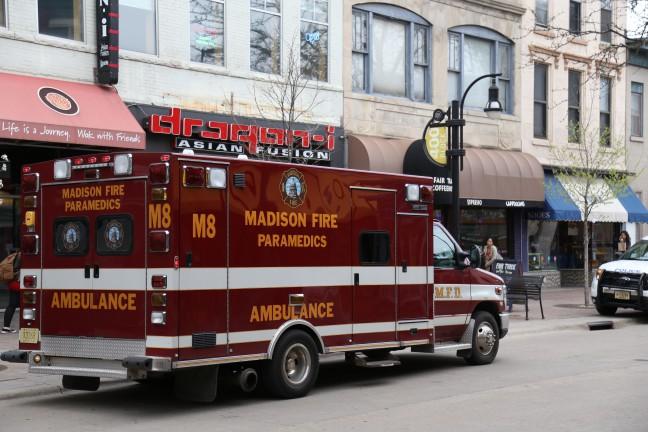In hopes to reduce medical and emergency services’ costs, Wisconsin lawmakers introduced a bipartisan bill that would allow the community to provide emergency care.
Rep. Amy Loudenbeck, R-Clinton, one of the main sponsors of the legislation, introduced the bill March 17. The bill would set up state expectations for non-emergency health care and was created in collaboration with local emergency service organizations like Professional Firemen of Wisconsin, Loudenbeck said.
The bill would allow community paramedics or trained non-emergency medical technicians to administer services to patients under the direction of a hospital, physician or clinic. This would reduce the constant need for emergency medical technicians and medical professionals in non-emergency cases.
Joe Strohl, lobbyist for the Professional Firefighters of Wisconsin, said paramedics and emergency medical technicians can only go help people in emergency cases. But in some cases, people are calling 911 when it is not necessary. This is a strain on resources and time for emergency service providers, he said.
“It’s very costly to a fire department or emergency medical service to respond to someone when they’re really not needed there,” Strohl said. “This ties up their equipment and their staffing.”
The bill addresses Community Emergency Medical Services, Loudenbeck said. This service allows patients to access healthcare in a mobile environment outside the hospital. It may include services such as working with the local hospital to provide community paramedicine care, chronic disease management, preventive care or post-discharge follow-up visits, she said.
Loudenbeck said CEMS increases the capabilities of private ambulance companies, hospitals and municipal EMS providers.
This is the first time a bill has proposed such guidelines in Wisconsin, Loudenbeck said. While communities may have programs on a small scale, there is no statewide regulation. Communities are free to choose whether they want to adopt the bill or not.
“As more and more communities consider establishing CEMS, one of the challenges they encounter is a lack of state standards to follow and no specific qualifications or guidance regarding services that can be provided,” Loudenbeck said.
UW looks to create ‘educational pipelines’ for students interested in health care
Madison Fire Department spokesperson Cynthia Schuster said the impact of community paramedics on individual citizens remains to be seen. CEMS has the potential to go a long way for minimizing costs freeing up emergency services and changing the role of a paramedic.
Schuster said CEMS may decrease the number of people who end up frequently using the emergency room, which will reduce emergency care costs. This would also lower public healthcare costs, she added.
“It would cut down on the number of 911 calls and ER visits,” Schuster said. “Community paramedics are able to assess risk factors, health concerns and create an accountability structure and partnership … It will hopefully prevent the next emergency.”
Madison barbershop works to make health education more accessible for men of color
Schuster said EMTs may not have as much time to build a personal relationship with a patient while working quickly with a patient in an emergency situation. Community paramedics, however, could potentially get to know people on a personal level and connect more holistically.
Madison currently has a pilot program for CEMS through UW Hospital, Loudenbeck said.
In addition to the Professional Firemen of Wisconsin, members of 10 other Wisconsin emergency services departments or educational organizations turned out to the public hearing to support the bill.
Loudenbeck said several stakeholder organizations came out in favor of the legislation. Organizations like the Wisconsin EMS Association, Wisconsin State Fire Chiefs Association and Gunderson Health System gave quotes and testimonies supporting the bill.
Strohl is confident the bill will pass.
“We’re optimistic the bill will pass the assembly and that we won’t face any opposition,” Strohl said.
The Committee on Health voted for the bill on March 29 and now it will move to the Senate for a public hearing.
















